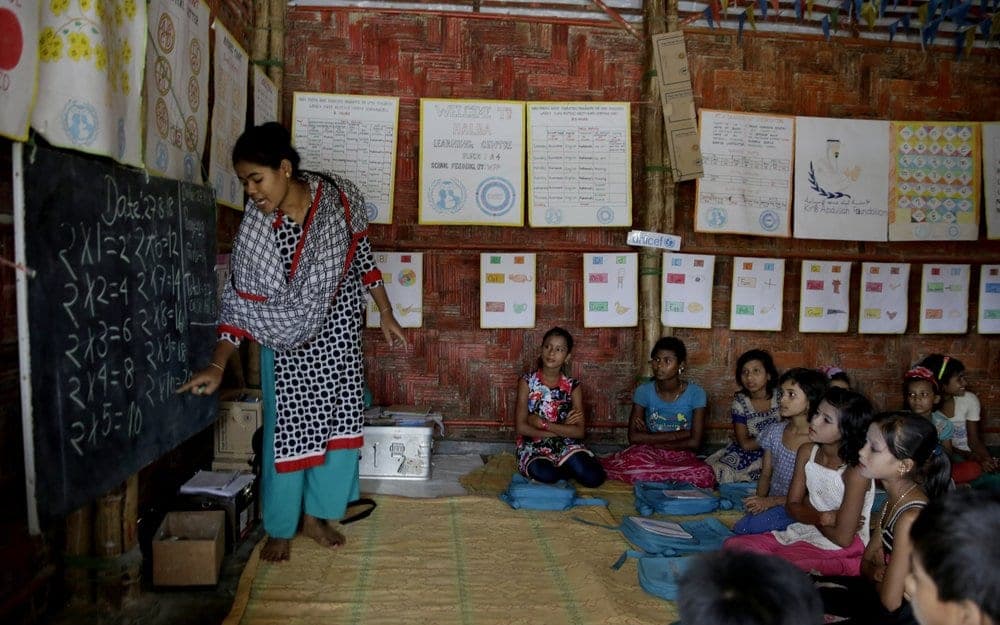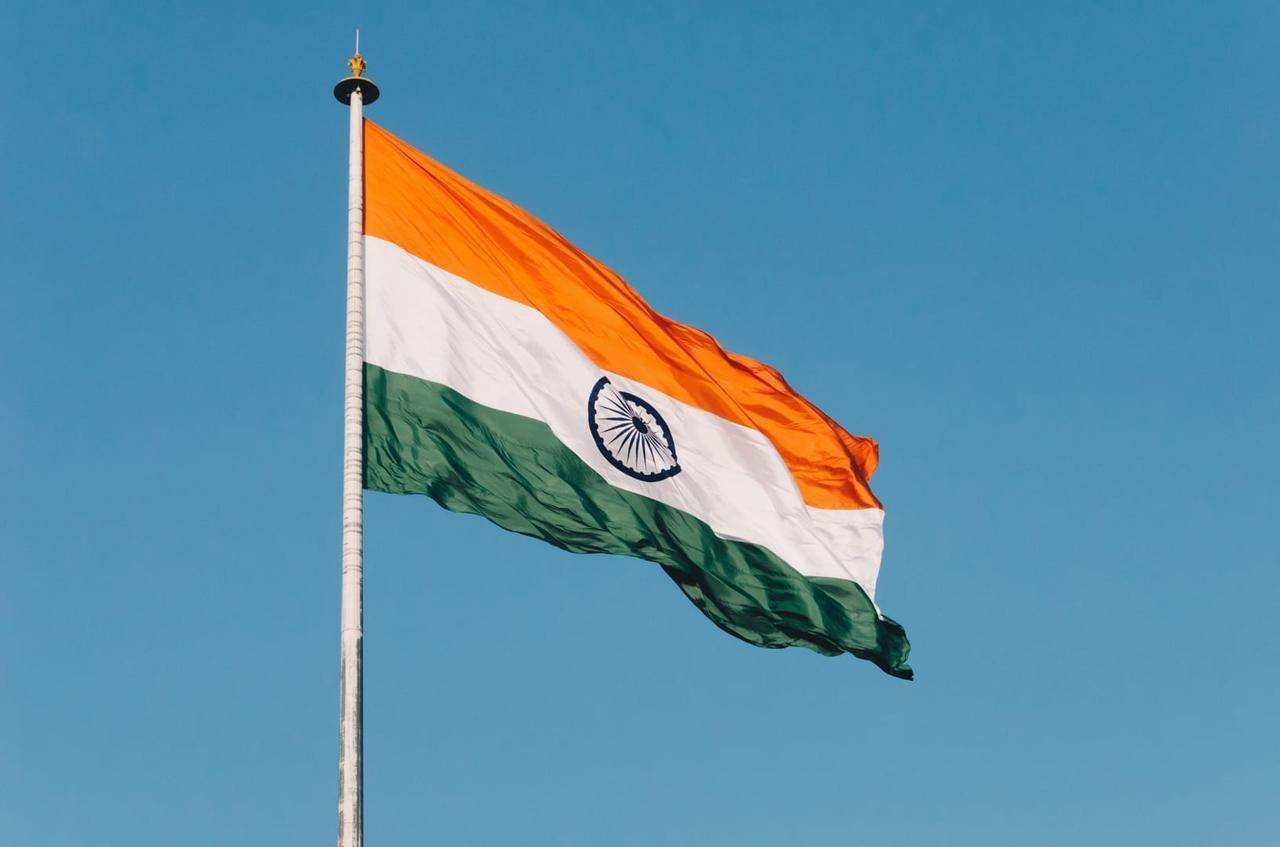MUMBAI, India – Caritas Bangladesh says a government decision to expand access to education for Rohingya children is “good news and a positive decision.”
Authorities in Bangladesh in partnership with the United Nations will expand educational programs for hundreds of thousands of Muslim Rohingya children living in refugee camps who are currently receiving only basic lessons, officials said Wednesday.
The children, who fled with their families from neighboring Myanmar to the camps in Bangladesh’s Cox’s Bazar district, now attend about 1,500 learning centers run by UNICEF that provide basic education, drawing and other fun activities. Under the new program starting in April, they will receive a formal education using a Myanmar curriculum from grade 6 to 9, the U.N. said in a statement.
“Education is the backbone of a nation, and education for Rohingya children was an urgent need; without education Rohingya children cannot have a future,” said James Gomes, regional director for Caritas Bangladesh.
“If they are educated, they will be able to contribute after returning from Bangladesh. Also, since we have advocated for formal education and got prepared for it, Caritas has been running child-friendly spaces in the camps to offer basic education,” he told Crux.
Pintu William Gomes, the project director, told Crux that Caritas Bangladesh will start its small scale education program for Rohingya this month.
“We are also looking for opportunity to expand our education program in the near future. In the past we mainly implemented child friendly spaces where we included the essence of learning approach for education,” he said.
“From January 2020, the Rohingya Response program is directly run by the central Caritas office. We are also going to start two formal learning centers from February 2020,” he said.
Buddhist-majority Myanmar has long considered the Rohingya to be “Bengalis” from Bangladesh even though their families have lived in the country for generations. Nearly all have been denied citizenship since 1982, effectively rendering them stateless, and they are also denied freedom of movement and other basic rights.
The long-simmering Rohingya crisis exploded in August 2017 when Myanmar’s military launched what it called a clearance campaign in Rakhine state in response to an attack by a Rohingya insurgent group.
The violence caused more than 700,000 Rohingya to flee to overcrowded refugee camps in neighboring Bangladesh for safety. They joined an estimated 500,000 Rohingya refugees already in the country.
Bangladesh Foreign Minister A.K. Abdul Momen said the government will work with UNICEF to create a pilot project for 10,000 children.
“We don’t want a lost generation of Rohingya. We want them to have education. They will follow Myanmar curricula,” Momen told Agence France-Presse.
“We believe this is a positive step and a clear indication of the commitment by the government of Bangladesh to ensure access to learning for Rohingya children and adolescents, as well as to equip them with the right skills and capacities for their future and return to Myanmar when the conditions allow,” the United Nations said in a statement.
“These efforts will help to accelerate an expansion of education particularly to older children, make the content of education more relevant for refugees and allow us to more comprehensively meet the educational wishes of the Rohingya people. When conditions become conducive and refugees are able to return to Myanmar in a safe, dignified and sustainable way, these efforts will also help children reintegrate into the Myanmar education system and society,” the statement continued.
Mostafa Mohammad Sazzad Hossain, a spokesman for the United Nations High Commissioner for Refugees in Dhaka, said a teacher training program is being developed.
“Individuals with appropriate academic qualification and experience will be recruited from both Rohingya and Bangladeshi communities and trained as teachers,” he told the Associated Press.
Mahbub Alam Talukder, Bangladesh’s refugee, relief and repatriation commissioner, said the government wanted the Rohingya children to be provided with a Myanmar education, to facilitate their return home.
“They will be taught in Myanmar’s language, they will follow Myanmar’s curriculum, there is no chance to study in formal Bangladeshi schools or to read books in the Bengali language,” he told The Associated Press.
“There’s no scope for them to stay here in Bangladesh for long, so through this approach they will be able to adapt to Myanmar’s society when they go back.”
This article incorporated material from the Associated Press.
Crux is dedicated to smart, wired and independent reporting on the Vatican and worldwide Catholic Church. That kind of reporting doesn’t come cheap, and we need your support. You can help Crux by giving a small amount monthly, or with a onetime gift. Please remember, Crux is a for-profit organization, so contributions are not tax-deductible.















